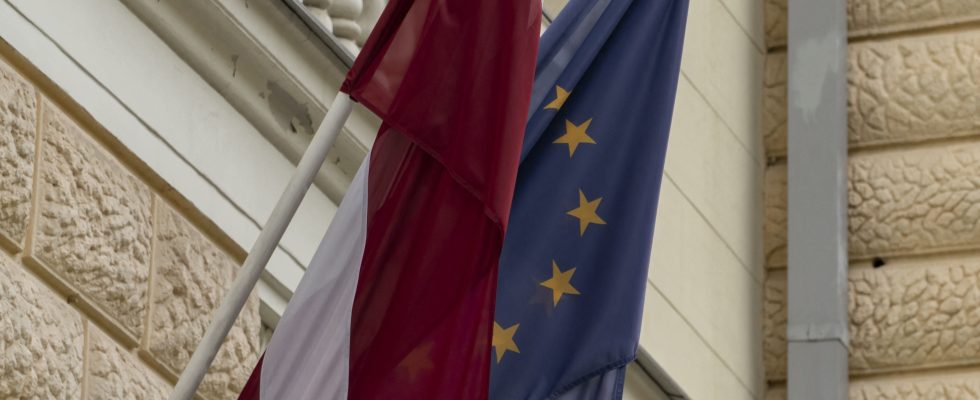Since the invasion of Ukraine, the Baltic countries have had their eyes fixed on their Russian neighbor. Starting with Latvia, a country of 1.9 million inhabitants and former vassal of the Soviet Union. A mark of this heritage that is still very present, the country is bilingual, Latvian and Russian. The Russian community also represents 25% of the population. Sharing a 214-kilometer border with its neighbor, Latvia fears a scenario similar to that of Ukraine, or at least attempts at destabilization emanating from its Russian community.
With this in mind, Latvia is attacking the rights of Russian citizens. Thirty-three years after the fall of the USSR, ethnic Russians will now have to apply for a permanent residence permit, which lost its validity since the outbreak of the war in Ukraine, to stay in Latvia. Everyone must now take a Latvian language exam. If they fail, they risk deportation to Russia.
A total of 445,600 Russians live in Latvia, according to official statistics. Nearly 299,000 of them have Latvian nationality and around 116,000 have been without citizenship since losing their Soviet passport in 1991. Finally, there are 38,000 who are citizens of the Russian Federation, again according to International mail.
Of the 11,301 Russians who took this language exam before September 2023, 61% failed on their first attempt. They had the right to a second chance. But this delay was not enough for some: as of January 4, 2024, 1,167 Russian citizens in Latvia were in a situation of expulsion from the country, reports the Russian daily Kommersant, based on data from the Office of Citizenship and Migration (BCM) of Latvia. Women and the elderly represent almost half of them. If some failed their test, others had not submitted their residence permit application. Note that other communities must respond to much more flexible conditions, which some Russian-speaking associations consider to be discrimination.
A derussification of Latvia
This is a 180-degree turnaround for Latvia, a democratic country which seemed to encourage living together. But the invasion of Ukraine accentuated divisions, hence the measures taken against Russian citizens. Enough to annoy this community which sees its rights and its culture gradually disappearing, while the Latvian authorities are working to de-Russify the country. Concretely, this new policy involves the dismantling of statues from the Soviet era or the banning of Russian television channels. But the hardest thing to swallow for Russian speakers remains the gradual elimination of Russian education from 2025. Enough to erase the bilingual character of the country.
For its part, the Russian Foreign Ministry did not fail to react. He denounced this attack on the rights of minorities on the part of Riga, adding that Moscow would welcome the “deported” Russians from Latvia, according to the Russian economic site RBK. “If things go as far as sending our compatriots back to their homeland of origin, Russia will do its utmost to take care of them,” added Russian Deputy Foreign Minister Alexander Grouchko.
Since the invasion of Ukraine, the Baltic countries have been on alert, fearing that the Russian giant will destabilize their nation and threaten their integrity. After the announcement of the partial mobilization in Russia by Vladimir Putin on Wednesday September 21, the Latvian, Estonian and Lithuanian governments decided not to issue visas to Russian citizens wanting to flee their country so as not to fight in Ukraine. In Estonia, measures have also been taken to limit the possibility of Russian nationals remaining in the country. The government could make an exception for students who will still have to sign a declaration affirming that they support Ukraine.
In Lithuania, where the Russian community represents only 5% of the population, the country has also adopted measures regarding Russians with long-term visas. “One day this Russian community will have to choose its camp,” explained an executive at the Lithuanian Ministry of Foreign Affairs to the newspaper World, in June 2023. As if the loyalty of the Russian community had to constantly be called into question. Ultimately, entire families risk paying the price for a war with which they had nothing to do.
